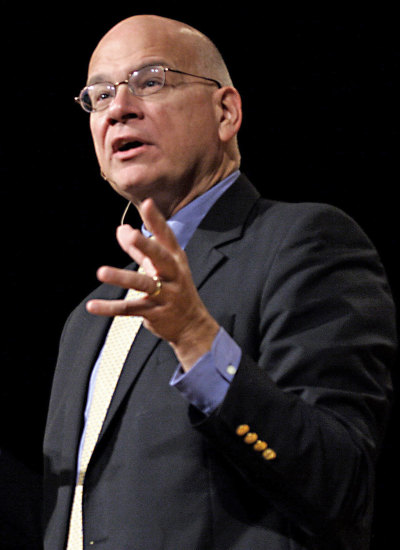
Rev. Tim Keller’s story: In the 1980s he moved with wife and three young sons to Manhattan, New York “to begin a new church for a largely non-churchgoing population…being told it was a fool’s errand. Church meant ‘moderate and conservative’: the city was liberal and edgy…New York was filled with young singles and non-traditional households…Manhattan was the land of skeptics, critics and cynics. Nevertheless, we launched Redeemer Presbyterian Church, and by the end of 2007 it had grown to more than 5,000 attendees” spread over 13 congregations. After the service Keller regularly conducted Q&A sessions.
Some of the following is commentary on his incisive 2008 book; The Reason For God, and some is my own.
Rev Keller died in New York on 19 May 2023 aged 72.
Its nature and beginning
It’s been said that there are about 200 religions in the world. Christianity aside, is there any other in which the central critical teaching is that its deity/god died publicly, yet in accordance with their own prediction rose to indestructible new life and moved among their followers before returning to heaven, never again to die?
Overnight those followers became bold spokesmen for their God in defiance of the earthly authorities having: taken your stand…holding firmly to the word (1 Corinthians chapter 15:verses 1/2) to the point of enduring torture and horrible deaths themselves, which ‘church’ now comprises cross-culturally and worldwide approx. 2 billion followers.?
If Christ has not been raised, our preaching is useless and so is your faith.…[then] your faith is futile, you are still in your sins…If only for this life we have hope in Christ we are to be pitied more than all men. (1 Corinthians chapter 15:verses14-19).
Christianity is not based on mere barren ideology or myth but on unchangeable history. It has been accused of practicing exclusivity but rather is openly and noticeably inclusive, there being a huge difference between the charge of exclusivity and the characteristic of being uniquely different.
Criticisms and answers
Philosopher J.L. Mackie wrote that if a good and powerful God exists, he would not allow pointless evil but because there is much unjustifiable pointless evil in the world, the traditional good and powerful God cannot exist, and if evil appears pointless to him then it must be pointless to all. This involves enormous faith in one’s own cognitive faculties.
C.S. Lewis recognised that modern objections to God are based on a sense of fair play and justice. “But the evolutionary mechanism of natural selection depends on death, destruction and violence of the strong against the weak”.
And philosopher A. Plantinga wrote that: “A [secular] way of looking at the world has no place for genuine moral obligation of any sort…and thus no way to say there is such a thing as genuine and appalling wickedness…
So the problem of tragedy, suffering and injustice is a problem for everyone…for both the non-believer in God and for the believer”. How does the abandonment of belief in God somehow make the problem of evil “easier to handle”?
Keller addressed the complaint that the church is responsible for so much injustice,
but being of good character and well-rounded personality is probably more attributable to a well-balanced home life and upbringing of love, encouragement and support than is church influence. Just as the church is a spiritual ‘hospital for sinners’, so it’s the case that many patients in ‘health hospitals’ are in poorer health than the average person in the street.
It may therefore appear that religion gets all the blame for aggravating human differences which can erupt into violence and oppression of minorities. But in countries that officially reject God and demand obedience from their populations, wherein enforcement is more likely to result from government-inspired violence and disappearances, (Russia, China, Cambodia and Nazi Germany), how/why is Christianity to blame?
True it is that violence or intolerance instituted by the ‘Christian’ church, and abuse of children in orphanages is a shameful thing that must never be excused or dealt with lightly, yet in those secular countries that are dictatorships and totalitarian regimes many millions of innocent people have been starved to death, exterminated en-mass, tortured and murdered.
“We can only conclude that there is some violent impulse so deeply rooted in the human heart that it expresses itself regardless of what the beliefs of a particular society may be”.
Rev. Keller says that: “The people who are fanatics, then, are so not because they are too committed to the gospel but because they are not committed to it enough…It’s not because they are too Christian but because they are not Christian enough…
They are fanatically zealous and courageous but they are not fanatically humble, sensitive, loving, empathetic, forgiving or understanding as Christ was…they emulate the Jesus of the whips in the temple, but not the Jesus who said ‘Let him who is without sin cast the first stone’.”
A Polish Nobel Prize winning poet had: “personally seen, in both nationalism and communism, that a loss of belief in a God of judgment can lead to brutality”.
Lord god science
It is one thing to say that science is only equipped to test for natural causes. It is quite another to argue science proves that no other causes could possibly exist. If there is a Creator God then there is nothing illogical about the possibility of miracles. To be sure that miracles can’t happen you have to be sure beyond doubt that God doesn’t exist either, although the non/existence of God cannot beproven nor disproven by science or otherwise.
If you disbelieve the resurrection, then the difficulty arises of explaining how and why the Christian church got started at all. There has to be an historically feasible explanation for the birth of the church for it didn’t just emerge without reason. It didn’t take time to develop and grow after much discussion and lengthy debate. It emerged quickly after Jesus’ death and resurrection.
Godless life’s end
“All God does in the end with people is give them what they want, including freedom from Himself ’’. C.S. Lewis stated that: “There are only two kinds of people…those who say to God ‘Thy will be done’ and in the end those to whom God says: ‘Thy will be done’. All that are in Hell chose it.”
Jesus at life’s end
“Jesus is the only Lord who, if you receive Him will fulfil you, and if you fail Him will forgive you eternally.”

Gavin Lawrie is a retired Barrister and Solicitor from Tweed Heads NSW Australia and author of the book: 'THE EVIDENCE OF EVOLUTION: Uncovering The Faulty Science Of Dawkins' Attack On Creationism'. He is married to Jan with two adult children and they are grandparents.
Gavin Lawrie's previous articles may be viewed at http://www.pressserviceinternational.org/gavin-lawrie.html